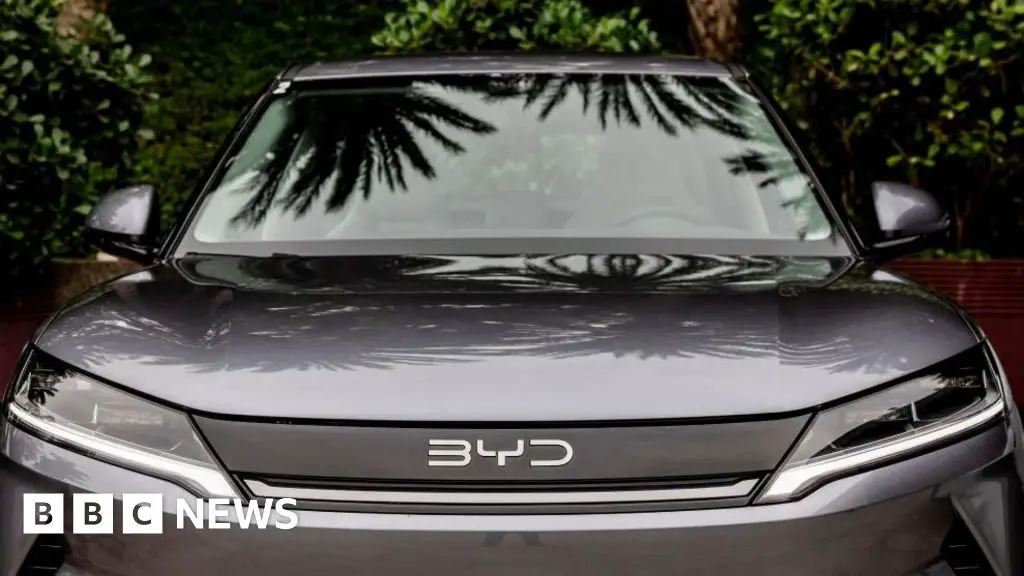Brazilian authorities have halted construction of a factory for Chinese electric vehicle giant BYD, saying workers were living in conditions akin to “slavery.”
More than 160 workers were rescued in the northeastern Brazilian state of Bahia a statement from the public prosecutor’s office for employment (MPT).
They were allegedly placed in a “degrading” environment and had their passports and salaries withheld by a construction company.
BYD said in a statement that it had severed ties with the company involved and remained committed to “full compliance with Brazilian law.”
The factory was scheduled to begin operations in March 2025 and would be BYD’s first electric vehicle factory outside of Asia.
The workers hired by Jinjiang Construction Brazil lived in four facilities in the city of Camaçari.
According to prosecutors, workers in one such facility had to sleep on beds without mattresses.
Additionally, each bathroom was shared by 31 workers, forcing them to wake up extremely early to be ready for work.
“The conditions found in the shelters revealed an alarming picture of precarity and degradation,” the MPT said.
“Slavery-like conditions” under Brazilian law include debt bondage and work that violates human dignity.
The MPT added that the situation also constitutes “forced labor” as many workers are deprived of wages and face excessive costs for terminating their contracts.
BYD said the affected workers had been moved to hotels.
It added that it had carried out a “detailed review” of the working and living conditions of temporary workers and had asked the construction company to make improvements “on several occasions”.
BYD, short for Build Your Dreams, is one of the world’s largest manufacturers of electric vehicles.
It sold more electric vehicles than Elon Musk’s Tesla in the last three months of 2023 as the two battled for the top spot in the industry.
The company has also expanded its presence in Brazil, by far its largest foreign market.
The company first opened a factory in São Paulo in 2015, producing chassis for electric buses.
Last year, the company said it would invest 3 billion reais ($484.2 million) in Brazil to build an electric vehicle production plant.
Sales of electric vehicles in China have been boosted by government subsidies. encourage consumers to trade in their gasoline-powered cars for electric or hybrid vehicles.
But there is a growing backlash abroad against what some see as the Chinese government’s unwarranted support for domestic automakers.
Major markets such as the US and EU have imposed tariffs on electric vehicles from China, with further tariffs expected under new US President Donald Trump.





